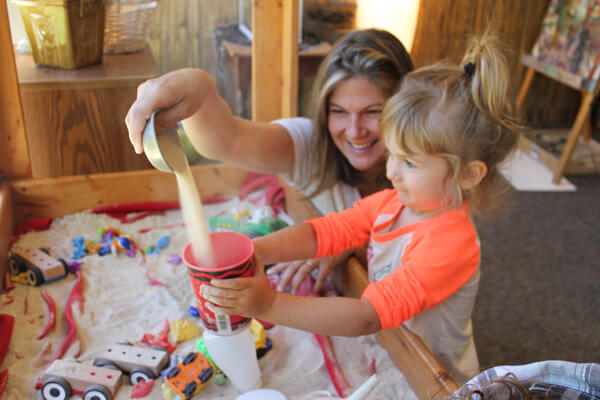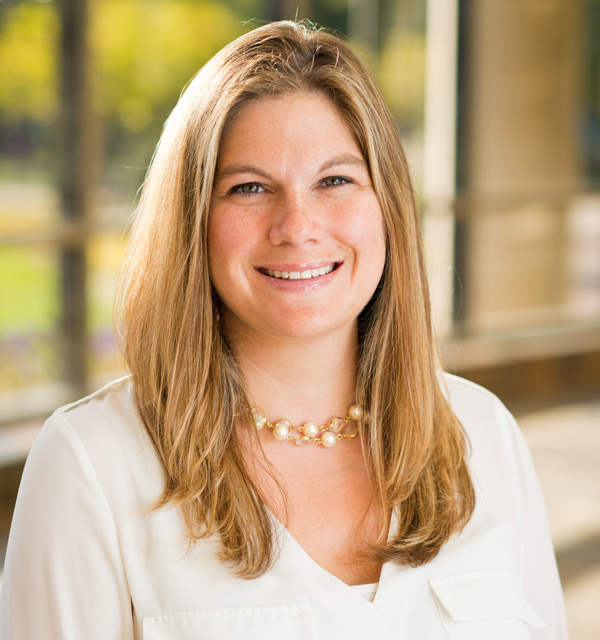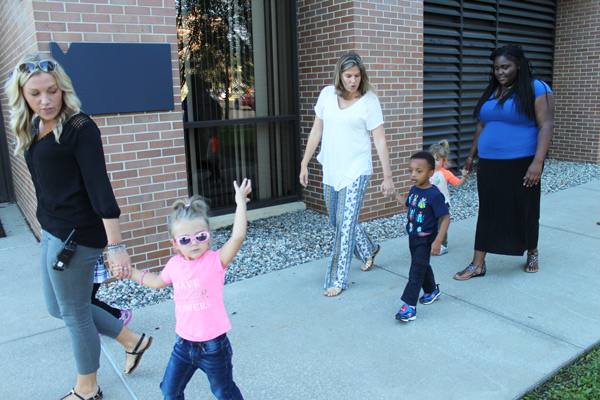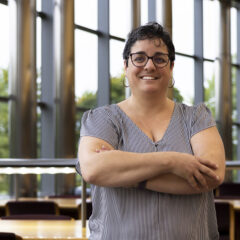UM-Flint Education Faculty Link Scholarship with Practice

Christine Kenney, PhD, Assistant Professor of Education at the University of Michigan-Flint, hopes to make a lasting impression on her early childhood undergraduate and graduate education students—one that fosters a life-long love for learning.
Alongside her UM-Flint early childhood education colleagues, Kenney wants her students to approach complex research studies and journal articles in the same manner she does: with an open mind, a critical eye, and a realization that, no matter their experience in the field, her students can take an active role in providing an optimal learning environment for the young children they care for and teach.
Kenney's strategy of using text connections and contribution roles emphasizes the practical side of research so her UM-Flint students can apply certain aspects of their reading to their professional lives.
Her goal is to help students realize that learning to comprehend, analyze, and question academic research is valuable for the field as a whole, as well as their own professional development.
"I want them to hear my voice when they're reading an article and to hear me say, 'What did you think about that? Could you look at that differently? Do you agree with this?" Kenney explained. "I hope my students will be life-long learners and continue to hone their knowledge and teaching practice throughout their careers."

Using text connections is a strategy to increase comprehension that sticks with students long after the course has ended. After students read journal articles, case studies, and textbook material at home, they are asked to reflect on the content by analyzing how the material relates to their personal experiences.
Then they organize their thoughts before contributing to class discussions using different roles, from summarizing points to playing devil's advocate on a topic or respectfully disagreeing with one another in class. These strategies increase participation while reminding students that their thoughts, reactions, and opinions matter and are important to build a student-centered learning environment.
"I want students to remember what's important to them from the reading," Kenney said. "I'm not the type of teacher who lectures and just gives information. We all learn from each other and I'm included in the 'we.'"
Kenney joined the UM-Flint Education Department within the School of Education and Human Services in September 2012. She received her PhD in Educational Studies in 2012 from the University of Michigan. Before joining UM-Flint, she taught early childhood special education and was also a teacher consultant and summer school administrator for the Ann Arbor Preschool and Family Center. She has received Golden Apple Teaching Awards and, in 2015, received third place for the Provost Teaching Innovation Prize.
She is currently collaborating with UM-Flint education faculty members Aviva Dorfman, Jennifer Lee, and Kathy Dunham on a manuscript in progress entitled "Learning to contribute: Text connections in early childhood teacher education." Each professor applies text connection strategies in different ways that reflect their teaching styles.

Kenney currently has an article under review for publication about contribution roles, and she is also working with two UM-Flint education alumni, Hollie Everett and Nicole Evans, on a text connection-related piece about how graphic representations can be used to make thinking visible.
She has published a chapter in Research-Based Practices in Special Education concerning vocabulary instruction for students with or at risk for learning disabilities, and co-authored an article in Academic Exchange Quarterly with Nicole Evans about using text connections to foster learning engagement.
Kenney loves interacting with UM-Flint students, staff, and children at the UM-Flint Early Childhood Development Center.
"Many people say that children are innocent and I agree; but, I also believe they are wise," Kenney said. "Young children remind me to stop, look, listen, and learn. They remind me what an amazing gift learning can be. I went into the field of education so I can continue to learn with young children."
Editor's Note: This profile is the third in our Faculty Research Spotlight series, highlighting the research of University of Michigan-Flint faculty and its benefit for our community and our world. Learn more about research at UM-Flint at umflint.edu/research. To suggest a faculty research project to spotlight, contact UM-Flint staff writer Robert Gold at [email protected].
- Early Childhood
- Early Childhood Development Center
- Education
- Faculty
- Graduate Programs
- K-12
- Research
- University News
UM-Flint News
The Office of Marketing & Communications can be reached at [email protected].
